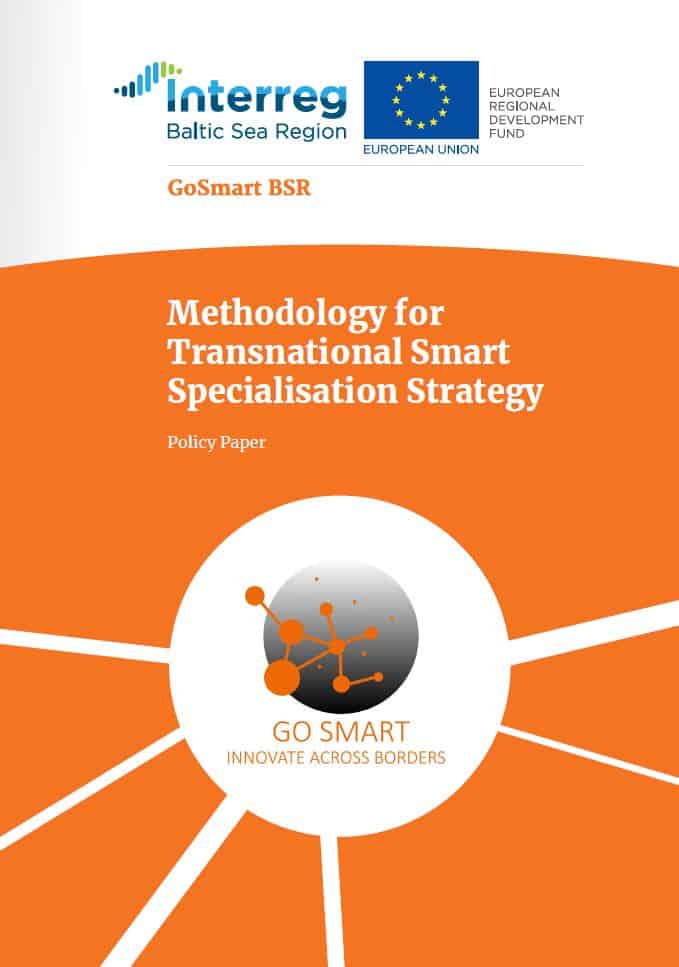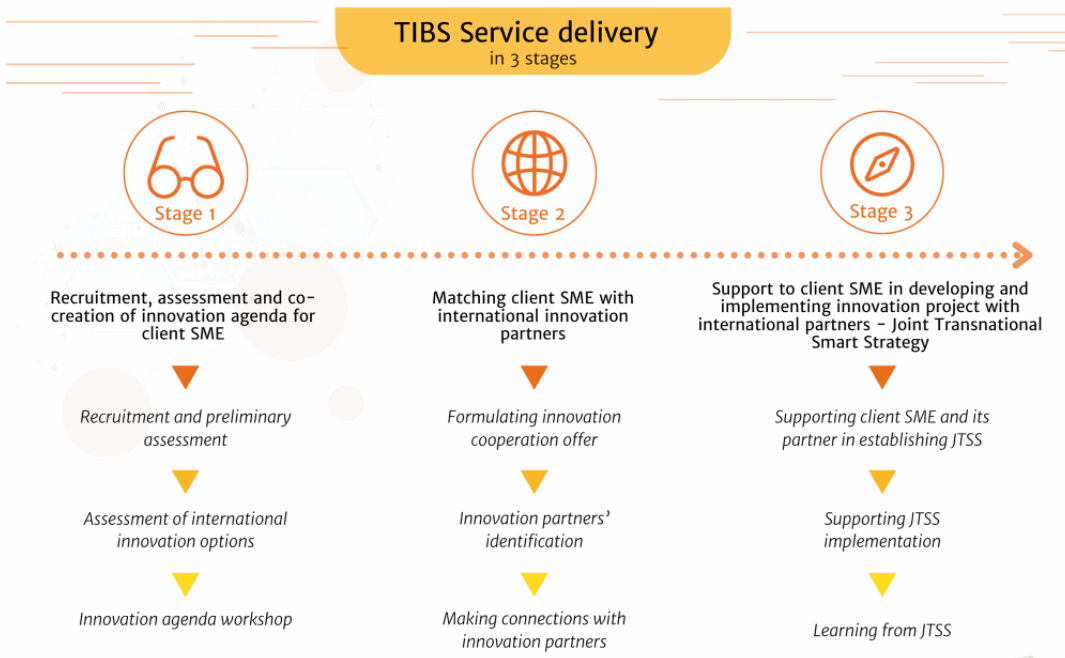GoSmart BSR
Smart Specialisation approaches and Strategies (S3) are multiplying across Europe and the Baltic Sea region as a way to infuse innovation and increase competitiveness through beneficial partnerships among business, research and authorities. The most critical and vulnerable group of actors dealing with S3 are SMEs, which largely fall behind other players in terms of innovation activities and investments in research and development. Even though the SMEs get support in idea generation and incubation, the analysis shows that the support funding is no longer available and some support tools need an upgrade.
The project aimed to identify gaps in the available support systems, understand the needs and development barriers. GoSmart BSR wanted to boost transnational cooperation among industry, the research, and development sector, and authorities in employing smart specialisation strategies in regions in the eastern parts of the Baltic Sea region. It intended to promote mutual learning, sharing best practices, and translating smart specialisation strategies into practical joint actions of SMEs.
Budgets
in numbers
-
1.76MillionTotal
-
1.42MillionErdf
-
0.00MillionEni + Russia
-
0.00MillionNorway
Achievements
The project studied the situation of smart specialisation in Latvia, Estonia, Lithuania, Poland, Germany, Finland and Denmark, identified common priority areas that would enhance development of the Baltic Sea region, tailored an approach for strengthening smart specialisation and developed Transnational Innovation Brokerage System (TIBS).
Valuable exchange among the partner countries
By identifying the gaps of the existing support systems for SMEs, the project GoSmart BSR developed a new transnational approach to S3 and introduced a system of improving SMEs access to international markets. The project integrated countries of low innovation potential of less developed Baltic Sea region (BSR) with countries from better-developed regions. This was achieved through mutual learning, translating S3 into practical joint actions of SMEs, sharing best practices from more developed regions.
Transnational Innovation Brokerage System (TIBS)
The project established the Transnational Innovation Brokerage System (TIBS) in Latvia, Estonia, Lithuania, Poland, Germany, Finland and Denmark that operated with the support of trained brokers. TIBS concentrated on enabling transnational cooperation activities between companies active in the sectors that were defined as most relevant for the countries (e.g. manufacturing and industry, ICT, sustainable (eco) innovation).
The assisted companies received support to initiate interregional cooperation networks helping them to meet their individual business needs. The aim was to find a tailor-made solution to establish innovation-based cooperation between companies, the so-called Joint Transnational Smart Strategies (JTSS). The project reached out to 998 companies and presented TIBS possibilities, 296 of them were pre-treated according to the original TIBS methodology. By the end of the project, 44 SMEs and other entities were assisted by TIBS services towards JTSS successful development.
The Interreg project GoSmart BSR used EUR 1.71 million from the European Union to identify the shared priorities for continued development of the Baltic Sea region by applying the new transnational brokerage system and supporting SMEs to evolve as a prosperous business.
Outputs
Trans-S3 methodology

Transnational Innovation Brokerage System Concept

Project Stories
-
09.07.2021
Enterprises go smart beyond borders with Interreg
Small and medium sized enterprises largely fall behind other players in innovation and investments in research & development (R&D). Thanks to the Interreg project GoSmart BSR, enterprises in seven countries around the Baltic Sea learned how to use smart specialisation to improve competitiveness jointly and gain access to new markets.Read full story -
30.09.2020
Great project pictures that tell great Interreg stories!
More than seventy pictures competed in the Interreg Baltic Sea Region photo competition. Which projects were the best in illustrating transnational cooperation, grasping the essence of a project and its result, and presenting the 30th anniversary of Interreg? Congratulations to the teams of BalticRIM, RESQU2, Baltic Game Industry, EcoDesign Circle and GoSmart BSR!Read full story
Partners
Bialystok University of Technology
- TownBialystok
- RegionBiałostocki
- CountryPoland
- RepresentativeWieslaw Urban
- Phone
- E-Mail
- Web
Podlaska Regional Development Foundation
- TownBiałystok
- RegionBiałostocki
- CountryPoland
- RepresentativeMagdalena Maksimowicz
- Phone
- E-Mail
- Web
Vidzeme Planning Region
- TownCēsis, Cēsu novads
- RegionVidzeme
- CountryLatvia
- RepresentativeSanta Niedola
- Phone
- E-Mail
- Web
Valga Municipality Government
- TownValga
- RegionLõuna-Eesti
- CountryEstonia
- RepresentativeTriin Roo
- Phone
- E-Mail
- Web
Public Institution Lithuanian Innovation Centre
- TownVilnius
- RegionVilniaus apskritis
- CountryLithuania
- RepresentativeGiedre Stumbryte
- Phone
- E-Mail
- Web
Kouvola Innovation Ltd.
- TownKouvola
- RegionKymenlaakso
- CountryFinland
- RepresentativeTuomo Kauha
- Phone
- E-Mail
- Web
Hamburg Institute of International Economics (HWWI)
- TownHamburg
- RegionHamburg
- CountryGermany
- RepresentativeIsabel Sünner
- Phone
- E-Mail
- Web
Business Aabenraa
- TownAabenraa
- RegionSydjylland
- CountryDenmark
- RepresentativeLisbeth Strange Jensen
- Phone
- E-Mail
- Web
-
Project managerWieslaw UrbanBialystok University of Technology
-
Legal representativeMirosław ŚwierczBialystok University of Technology
-
Financial managerMaciej LukaszukBialystok University of Technology
-
Communication managerSanta VitolaVidzeme Planning Region



